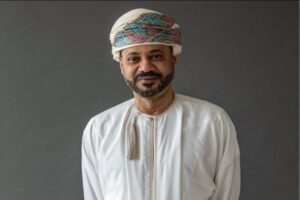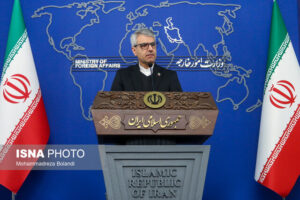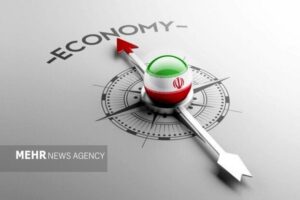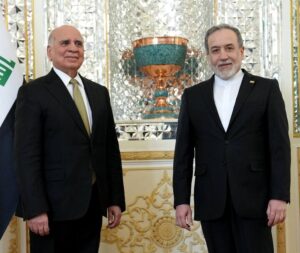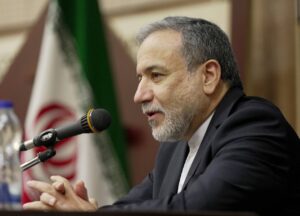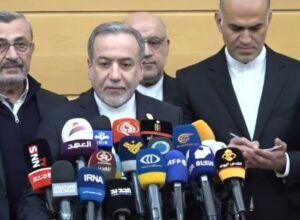According to the Persian edition of IRNA, Iran’s Ambassador and Permanent Representative to the UN Office and other international organizations in Vienna described the attack on Iran’s nuclear facilities as an irreparable blow to the international non-proliferation regime, warning that the United States, by disregarding international law, has effectively resorted to the “law of the jungle.”
Reza Najafi, in his address, stated: “The aggressive action by the United States, a depository state of the NPT, in attacking Iran’s safeguarded nuclear facilities—namely Fordow, Natanz, and Isfahan—on June 22, 2025, occurred while IAEA inspectors maintained an uninterrupted presence at these sites, with all operations under the Agency’s monitoring and verification.”
He added: “The U.S. President has publicly acknowledged responsibility for the attack on Iran’s safeguarded nuclear facilities and claimed to have destroyed Iran’s enrichment capabilities. Regardless of the validity of this claim, it is shameful that a depository state of the NPT not only violates the treaty’s fundamental principles but openly takes pride in an illegal act of aggression. Pride in savagery and violation!”
Referring to U.S. claims about upholding the rule of law, Najafi said: “Does anyone still dare to speak of the rule of law or an international system based on international law? The United States, through its actions, has discarded all legal norms and enforced the law of the jungle.”
He continued: “The aggressive actions by the United States and the Zionist regime in targeting safeguarded nuclear facilities have led Iran to conclude that such extensive cooperation, under current circumstances, can no longer serve its national interests, sovereignty, or security.”
Najafi stressed: “This recent aggression has dealt a fundamental and irreparable blow to the international non-proliferation regime, clearly demonstrating that the NPT framework has become ineffective in achieving its core objectives, including preventing attacks on safeguarded nuclear facilities.”
He noted: “The aggressive attacks by the U.S. and the Zionist regime have directly impacted the Agency’s ability to conduct routine inspections, severely challenging the effective implementation of the Comprehensive Safeguards Agreement. Moreover, the security of nuclear materials, including enriched uranium, has been gravely compromised, and the Agency’s continuity of knowledge can no longer be guaranteed.”
Najafi warned: “The U.S. and Zionist regime’s attacks may have widespread and devastating environmental consequences, posing serious risks of radioactive, chemical, and radiological contamination, not only for Iran but for the entire region.”
He emphasized: “Responsibility for these dire consequences lies not only with the aggressor coalition—the United States and the Zionist regime—but also with the Agency and the Board of Governors if they fail to fulfill their duties and take effective, appropriate, and principled measures, including unequivocally condemning these illegal acts.”
Citing Iran’s inherent right to self-defense, Najafi asserted: “The Islamic Republic of Iran, in accordance with the UN Charter and the NPT, will defend its great nation, sovereignty, and supreme national interests with full resolve.”
Warning of Non-Proliferation Regime Collapse
Rafael Grossi, IAEA Director General, warned of the consequences of the military attacks by the Zionist regime and the United States on Iran’s nuclear facilities, stating that the global non-proliferation regime is on the brink of collapse.
He emphasized that the only viable solution is a return to diplomacy, adding: “We must pursue this path; otherwise, the global non-proliferation regime, which has safeguarded international security for over half a century, may collapse.”
Grossi referenced previous General Conference resolutions, asserting that armed attacks on nuclear facilities must never occur. “Thus, I once again call for maximum restraint. Military escalation not only threatens lives but also delays the path to diplomacy.”
The Director General stated: “As I have previously said, I am ready to travel to Iran immediately. We must continue cooperation despite differences. I am prepared to engage with all relevant parties to ensure the protection of nuclear facilities and the continued peaceful use of nuclear technology in line with the Agency’s mandate.”
In today’s session, the EU’s Ambassador and Permanent Representative to international organizations in Vienna, without condemning the aggressive actions of the Zionist regime and the U.S. against Iran’s nuclear facilities, expressed concern over escalating tensions in the region and stressed that the only sustainable solution is a return to diplomacy and negotiation.
Carl Hallergard stated: “We announce our firm and unconditional support for the Treaty on the Non-Proliferation of Nuclear Weapons (NPT), which remains the cornerstone of the global non-proliferation regime and a vital platform for advancing peaceful nuclear energy applications. We reject any attempts to undermine this treaty.”
The European official added: “We will continue to actively engage in de-escalation efforts and pursue a sustainable resolution to Iran’s nuclear issue.”
The session followed the United States’ direct aggression on June 22, 2025, targeting three nuclear sites—Fordow, Natanz, and Isfahan—effectively joining the Zionist regime’s proxy war against Iran, significantly escalating regional tensions. In response, Iran’s Foreign Minister, Seyyed Abbas Araghchi, emphasized that the Islamic Republic, under Article 51 of the UN Charter, reserves all options to defend its people, interests, and national sovereignty

